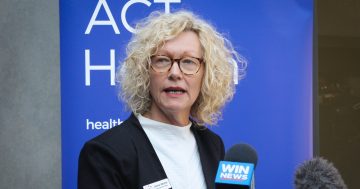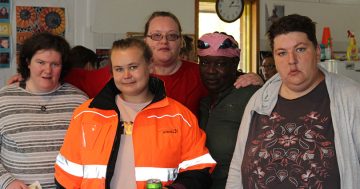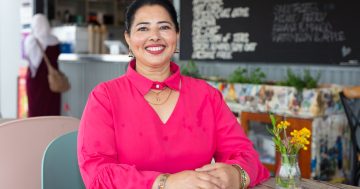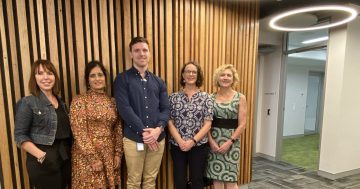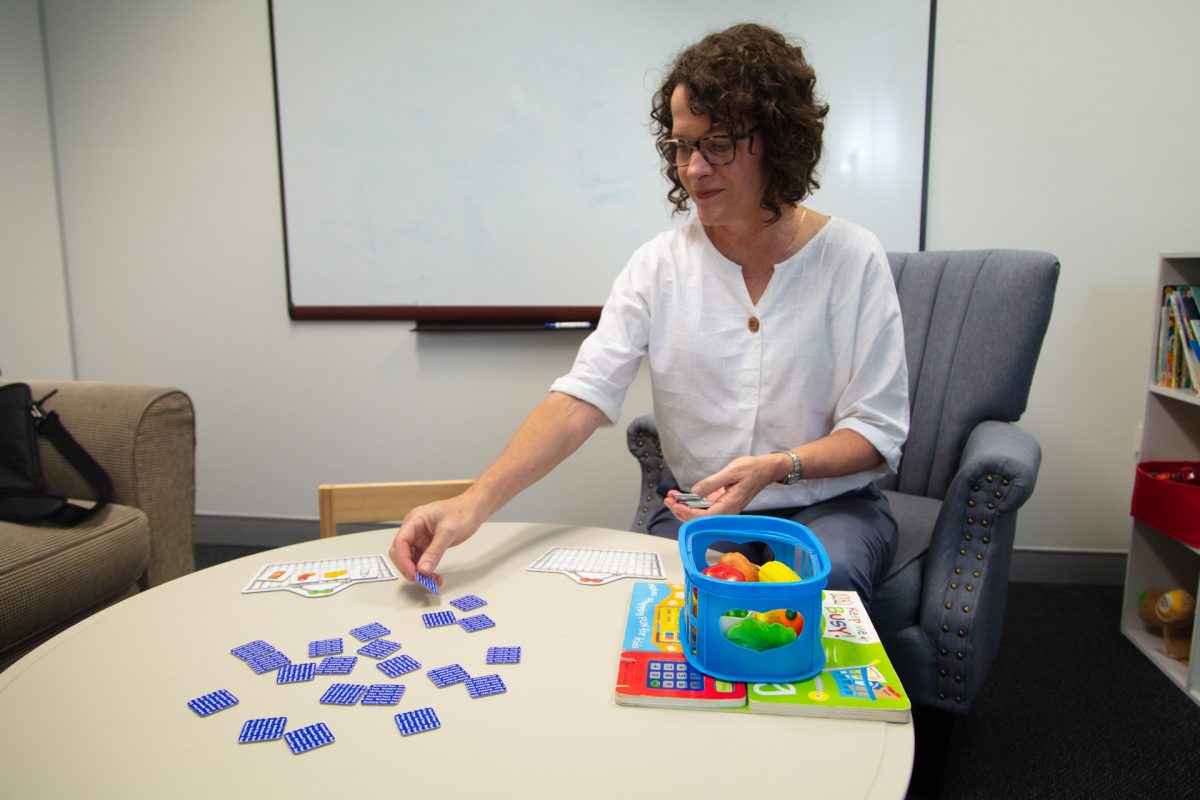
“Everyone wants to connect in some way.” Speech pathologist Tania Piper offers tailored speech therapy for children of early childhood and primary age. Photo: Thomas Lucraft.
If the pandemic taught global communities anything, it’s that all humans desire some form of connection with others.
For kids in Canberra who find speaking and listening difficult, connecting on a deeper level can seem almost impossible. While other forms of communication are used in schools and social settings, speaking is by far the most common way relationships are developed, lessons are learned, and experiences are shared.
Improving a child’s ability to communicate through whatever medium works best for them and building their confidence are vital in helping them participate in school, work and complex social settings.
Given the long waitlists and high demand for all kinds of disability services in the ACT, it was a natural progression for local not-for-profit Woden Community Service to add speech therapy to its support offering in 2023.
Therapy for early childhood and primary-age children (between ages two and 12) can be carried out at home, school, or in a WCS community hub.
After initial assessment, therapists create a tailored plan for each child based on specific goals to help them engage in and interact with the world.
WCS senior speech pathologist Tania Piper says early intervention is crucial – without it, children can quickly become withdrawn, frustrated or anxious, fall behind in school, or struggle to form strong bonds with friends and family.
“Social, emotional and academic skills depend heavily on language to grow, so the sooner we can provide support, the better,” she says.
“But speech therapy isn’t just about the voice; it’s about all forms of language.
“A child might need help developing speech sounds, words and sentences, or it might be comprehension they find difficult. Perhaps they have a developmental language disorder or Down syndrome. Whatever it may be, where their communication is impacted, it’s our job to step in.”
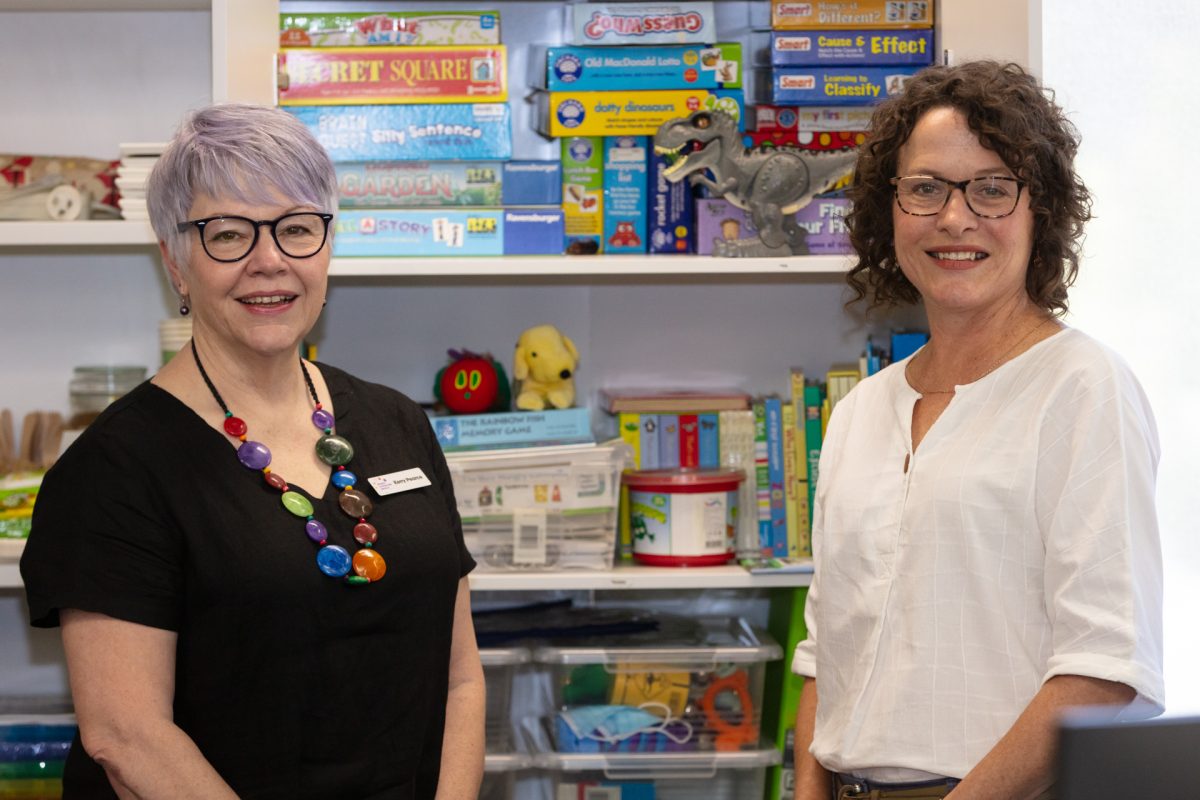
Kerry Pearce and Tania Piper from WCS have tips for parents of kids with language challenges. They include leaning into their strengths, validating other forms of communication, using their interests, and being observant, patient, and understanding. Photo: Thomas Lucraft.
More than one million Australians are diagnosed with a communication disability. The earlier in life a diagnosis is made, the better their prognosis generally is.
There are some obvious red flags to look out for that suggest language problems, such as reaching two years old with a vocabulary of 50 words or less, reaching three to four years old with speech that is not understood well by close relatives, and having muffled or stuttering speech or atypical voice sounds.
However, signs of delay can also be more subtle, like lack of gesturing, struggling to understand instructions, lack of ‘babbling’ in very early childhood, or difficulty learning to read and spell.
WCS supports a ‘wrap-around’ approach, providing speech therapy that intentionally contributes to support ‘teams’ surrounding a child with a disability.
“Children who require speech therapy may also be receiving support for other developmental or learning disabilities,” Tania says.
“Regular communication between those involved in supporting a child is important. This could mean family, teachers, paediatricians, psychologists, specialists or other providers.
“Broadly, it’s about providing coordinated and complementary support to best help families meet their goals for their child.”
The WCS team will expand their therapy services in the near future, with occupational therapy coming in 2024.
“We are also keen to link with local schools to offer assessments and intervention and help to support links between therapy and education while supporting family involvement,” Tania says.
“It’s about better connections between home, school and allied health.
“As our therapy team grows, we will offer therapy services to more people in our community, so definitely watch this space.”
WCS is currently accepting requests for speech therapy services, for children between two and 12 years of age. Jump online to find out more.












